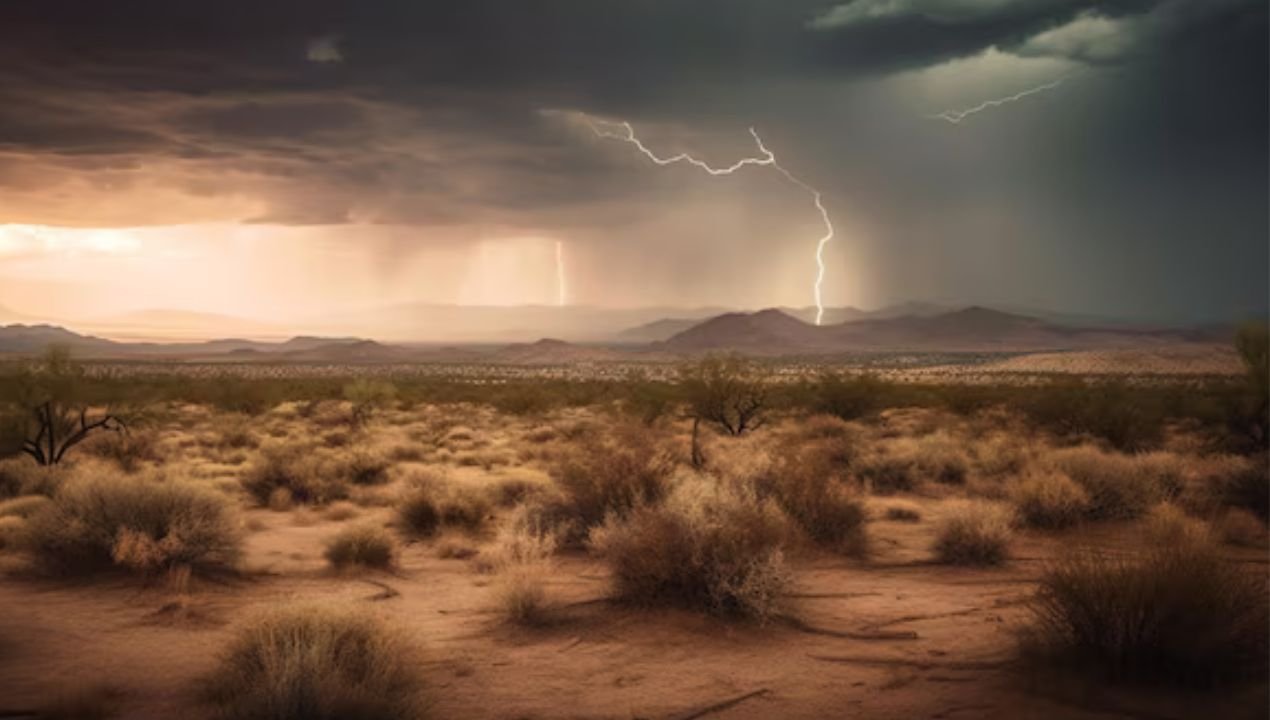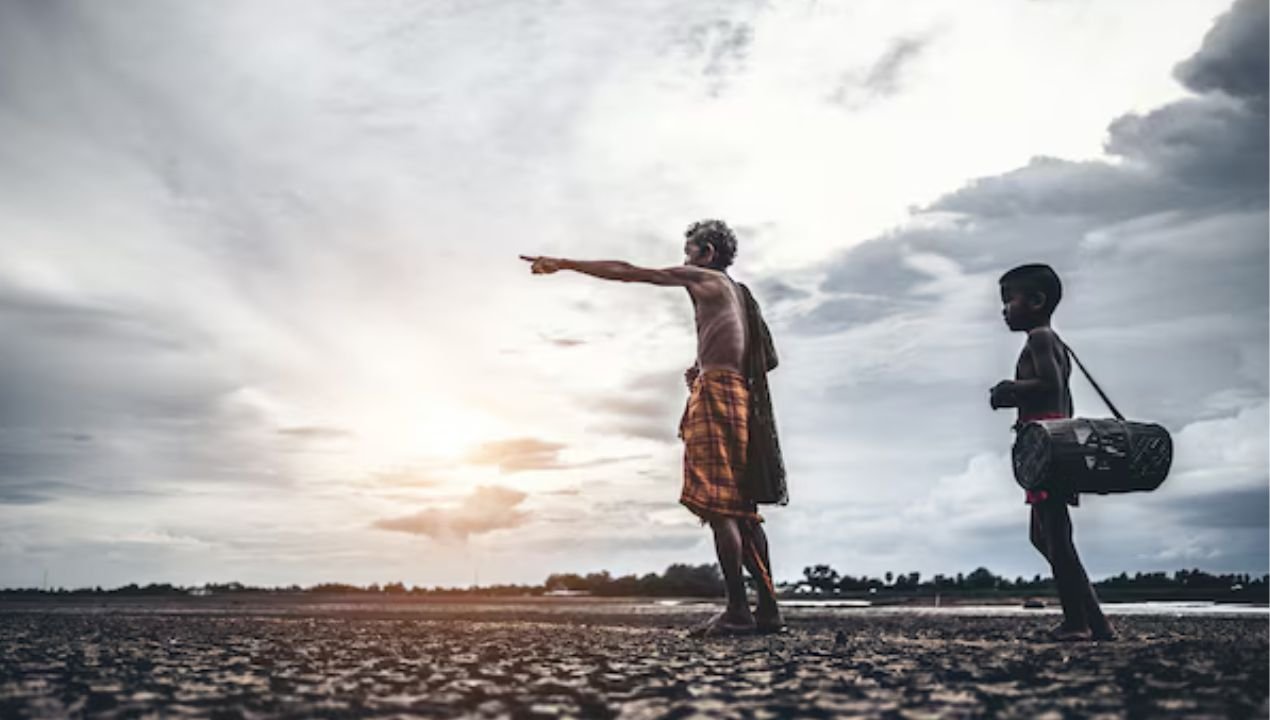Heavy and more frequent rainfall over the last few decades and dry spells have resulted in loss and damage to agriculture, livestock, the energy sector, food security, and nutrition in southern Africa. Climate change specialists Gracsious Maviza and Siyaxola Gadu spoke to The Conversation Africa about how this poses risks to stability and peace in the region.
What is the relationship between climate, peace, and security?
Climate risks do not have a clear, linear, direct relationship with security. However, the changing climate enhances socioeconomic problems. These include water scarcity, already precarious livelihoods and food insecurity, poverty, and weak governance.
If these problems become worse as the climate changes, it can create social tensions between and within communities.
Climate change-induced disasters threaten the livelihoods and well-being of communities. It can cause displacement, like the floods that have currently displaced 3.5 million people in west, central, and north Africa while killing 900.
This extreme weather disasters may as well spark competition and tension related to resources including food, land, and water.
If there is a lingering conflict already, then the impacts of climate change may either make it worse or extend it, hence making the achievement and attainment of peace difficult.

Conflict also gets in the way of communities organizing and uniting to implement their own response systems to adapt to climate change.
Conflict-affected settings are also more likely to experience climate-related instability.
This is because there is a strong reliance on food, land, and water systems explicitly climate-dependent examples in the case of rural communities based on proofs from rainfed agriculture.
We researched areas in Mozambique, Zambia, and Zimbabwe. Our results indicate that the negative impacts of climate change on food, land, and water systems are changing the dynamics of interaction in ways that will make it difficult to sustain communal harmony and peaceful relations.
How is southern Africa being affected?
Southern Africa is one of the world regions most vulnerable to climate variability and change. The South African region has been extensively subjected to extremely severe cyclones, floods, and droughts, which result from shifts in rainfall and temperature patterns.
This had its way into affecting water and agricultural resources, which subsequently led to food insecurities. As a result, tensions increased within and between communities, as well as the amplification of grievances against local and national authorities.
Zimbabwe, Zambia, and Malawi recently officially declared states of emergency due to persistent droughts.
Our case study established that in Zambia, the persistent droughts compelled farmers from the southern province to migrate to the northern part of the country. The emigrating farmers had different farming practices from the host communities, and this caused anxiety and agitation.

Other persons who had lost land and thus could not farm again in the northern part of Mozambique joined the non-state armed groups as the only alternative source of livelihood. In so doing, they offer themselves protection, and acquiring means of aids and money from the leaders of such groups for good appreciation of their loyalty and services.
Climate variability and change is not the only source of instability in this region. However, when combined with already-present problems with respect to water and energy infrastructure, social and political institutions, and lack of resources for climate risk management and adaptation, climate change disasters increase the danger of conflict happening.
What’s the link with migration and gender?
All these-that is, migration, climate, peace and security nexus, or where all of these intersect and connect-represent a rather complex situation.
Gender plays a key role in determining how persons and communities experience and react to disrupted livelihoods, resources scarcity, a degraded environment, and forced migration and displacement.
Climate change has differential effects on women and men. Traditionally, women are primarily responsible for supplying water, food, and energy at household levels, and change is hence felt directly. As a result, they are also the first on-the-ground responders to the adverse effects of climate variability and extremes.
This increases the workload of women since resources become scarce. They might walk a further distance to get water and firewood. Other economic or education-related activities are beyond their capabilities.
A field in the internally displaced people’s camp in Mozambique waits for rain. Credit:
Women are also disproportionate victims of violence and displacement in times of conflict. However women also act as important agents in the making of resilience and peace. Women often play a central role in solving conflict, building united communities, and the management of natural resources.
Since such scarce resources result in loss of livelihoods, men are more and more likely to migrate over long distances while on the look-out for work to feed families. The power dynamics within families affected by climate disasters shift. It becomes challenging for the man to stick to roles that make them breadwinners. This becomes difficult for their masculinities and brings gender-based violence to the fore.
What should the policy responses be?
Policies can help provide frameworks to guide action, allocate resources and set standards for reducing risks to peace and security-related climate change impacts.
Good policies would help in building resilience, reducing vulnerability, and increasing sustainable development. For example, the policy has to achieve preparedness for disasters and regional cooperation.
Currently, climate-related policies in most southern African countries are silent about peace and security. This is primarily due to the fact that this is a new concept and has, as yet, been endorsed not as such in southern Africa.
That is some good progress, however. For example, the CGIAR FOCUS Climate Security Team at the Alliance of Bioversity International and CIAT recently collaborated with the African Center for the Constructive Resolution of Disputes and the Zambian Ministry of Green Economy and Environment to enhance its National Green Growth Strategy with a climate perspective peace and security consideration.
Some available solutions available at the local level include conservation agriculture and natural resources management as informed locally. Governments should recognize these as means of mitigation of climate change impacts if they want to listen to the voices of the community.

